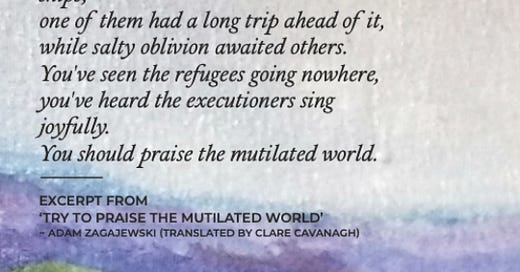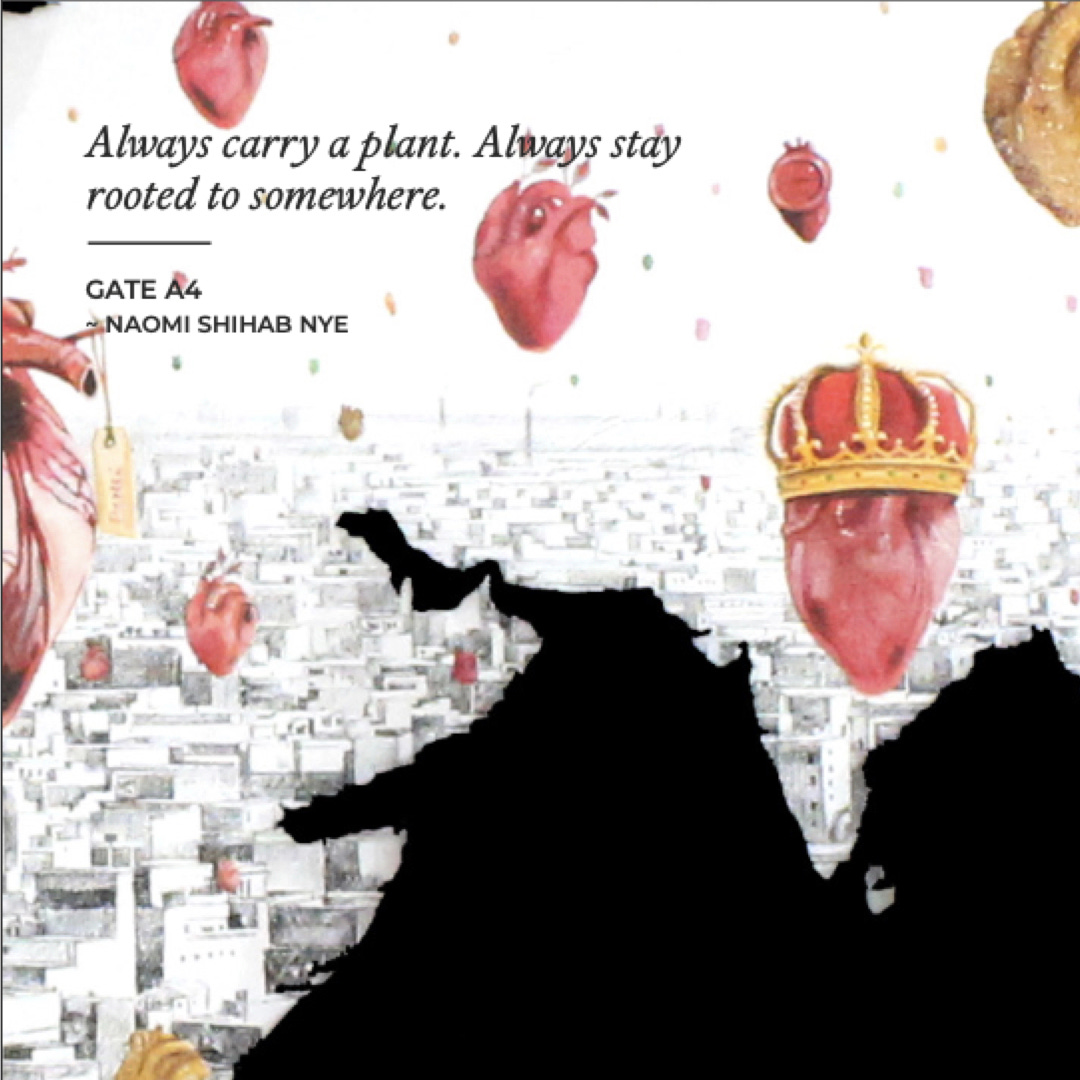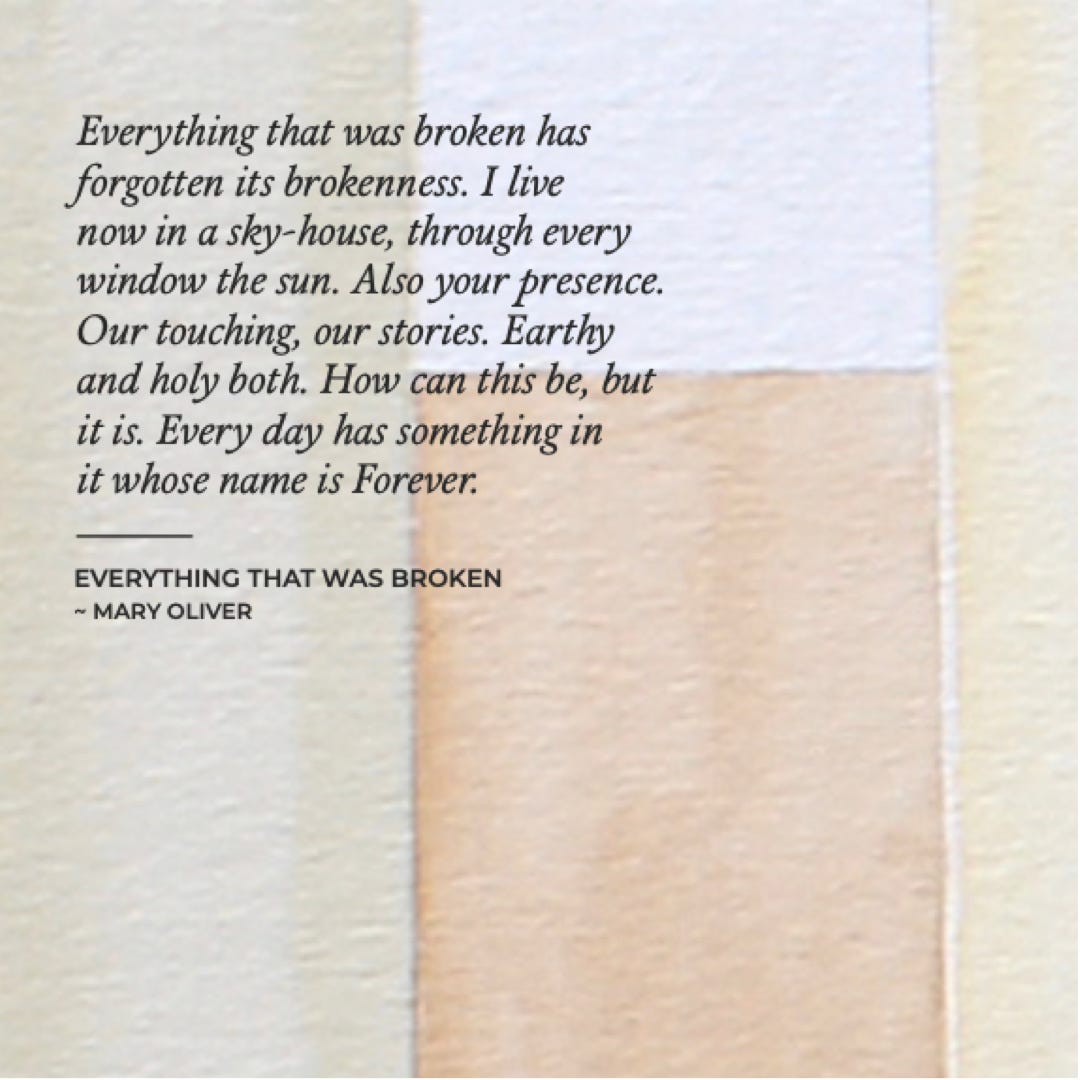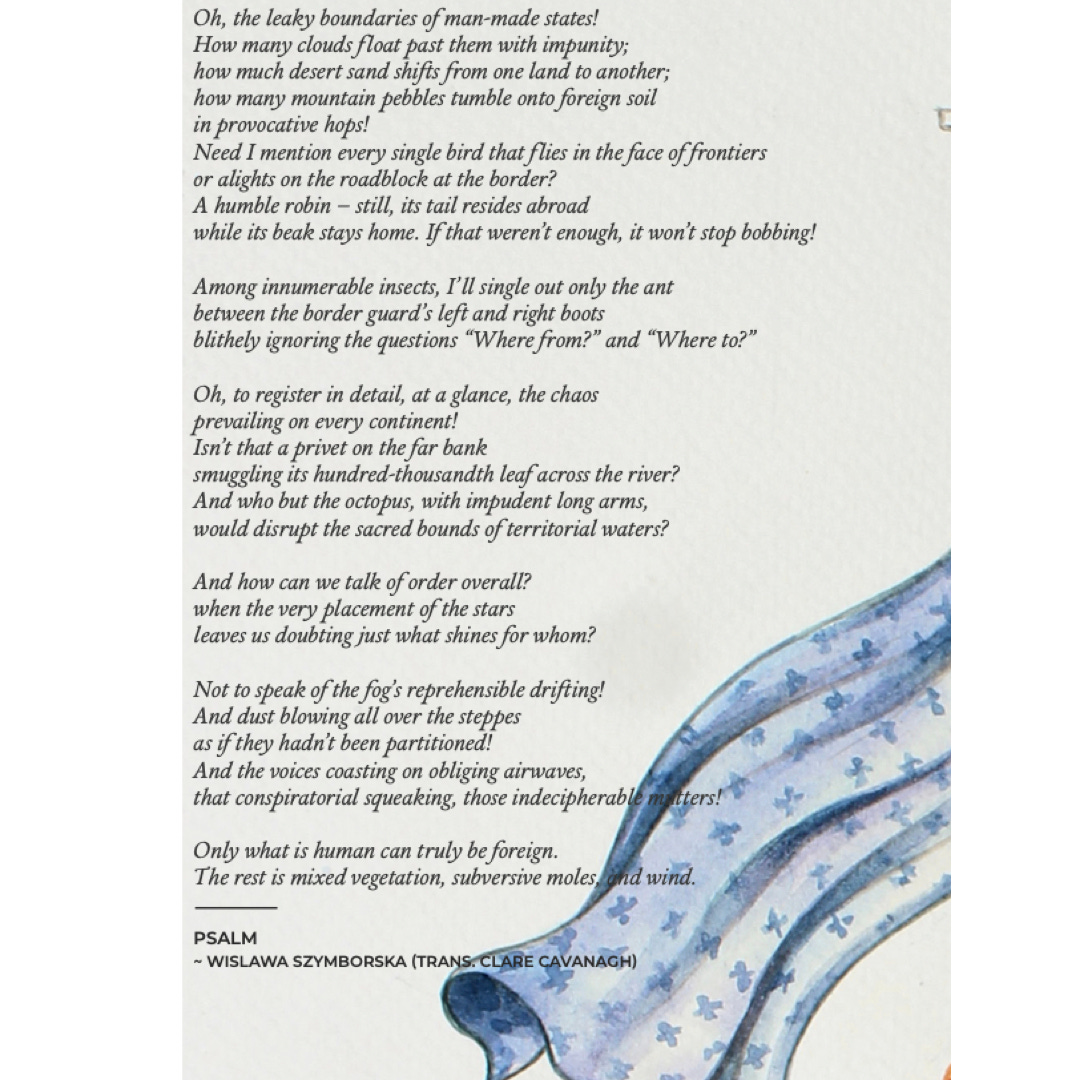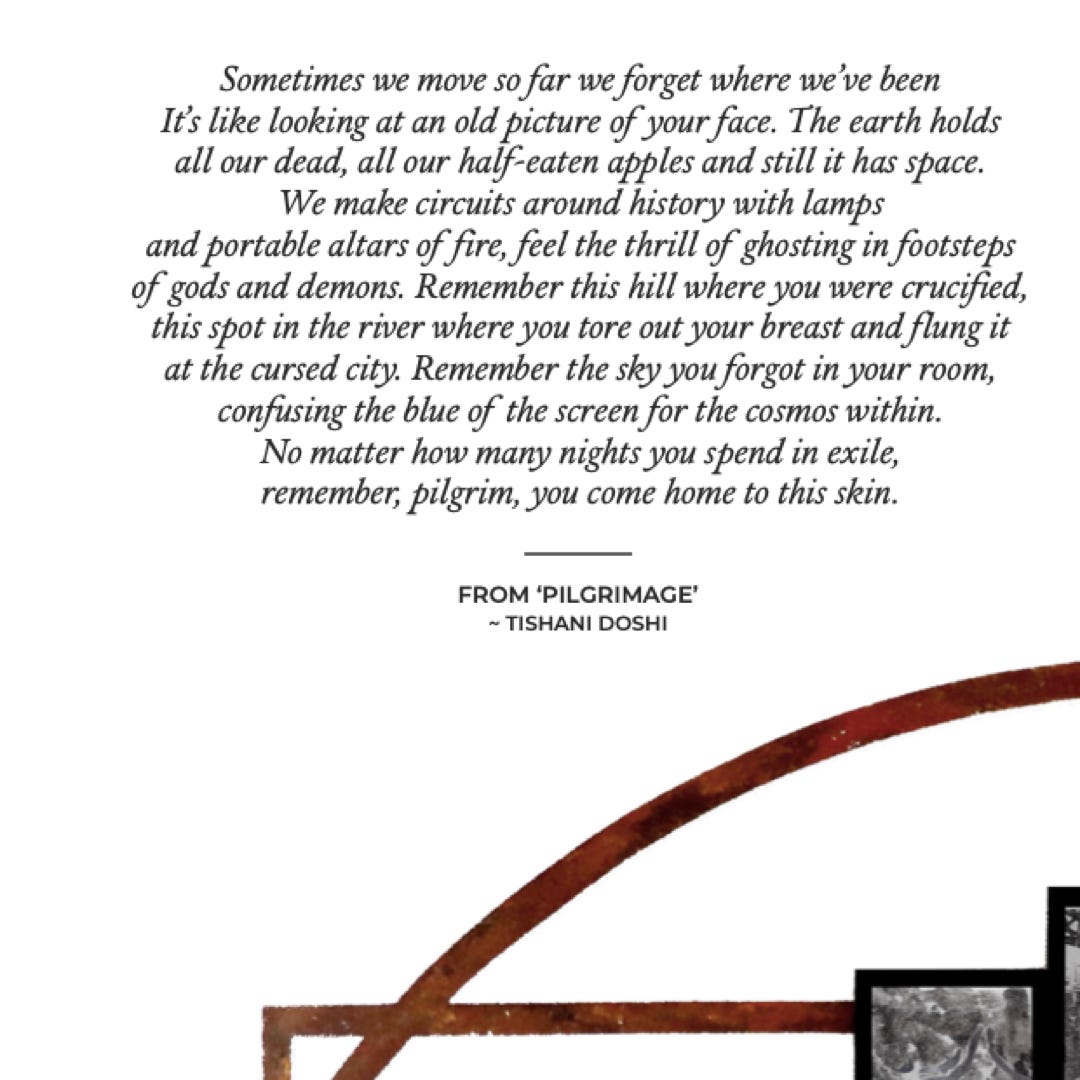At the outset, I would like to thank everyone who attended yesterday’s poetry reading, both physically, and digitally through Poetly’s, or Apre Art House’s insta page. I realised later that some of you were there imagining that I would be reading original poetry (I tried to make it very clear in all promotions about the event that I was going to be reading from a curated selection of various poets!). I hope that you enjoyed listening to the poems either way, and the reading drew you into the art. I apologise for the poor quality of the insta live on Poetly’s page. I did not have too much control over the videography, and there were network issues. I believe a recording of the event will be shared on Apre’s website/social media.
I was pleasantly surprised to see a good turnout for a poetry reading at 4.30 pm on a weekday. I have been to so many poorly attended readings where, apart from the organisers, and the poets (and friends), there are maybe two other people there - one biting their nails, and the other looking at their phone. Many poems have been written about such awkward occurrences. A sure shot fix that all artists and organisers will swear by, is conning humanities departments from the closest college or university to make attendance of said event mandatory or a part of the time table; at least the hall wouldn’t look empty. Luckily we didn’t have to resort to any of that.
I have also seen a kind of resurgence of interest in poetry in the last couple of years, globally. The idea of poetry as pharmacy, especially, has been quite popular. The number of instagram pages that have come up, with the sole purpose of sharing poems, is in itself a marker of this trend.
For today’s post, I’m sharing a few snapshots from the catalogue that housed excerpts from all the poems I had shortlisted to go along with the art in the exhibition ‘Transit’. The complete poems can be found here.
I want to quote from the curatorial note, by Lina Vincent:
“Humans are profoundly bound by notions of belonging and ancestry, proving their ties to place through written and oral histories, through various sorts of documentation, and material attributes.
A part of this lies in the built world – the villages, towns and cities; conglomerations of structures in every shape and size, to accommodate the vastly growing populations. The legacy of material culture in every part of the world, left behind by previous generations, stands as silent witness to past times, even as the ugly side of urban excess overshadows and consumes it all. This human-made urban detritus has been inching its way into the natural world, producing irreversible conflict and destruction.”
Many of the artists whose works have been showcased in the exhibition are themselves actors in the drama of transit. The effects of movement from homes in the rural hinterland of the country, to populous cities, and the daily struggles of survival, are visible in their work. Apart from the various forms of exodus and migration that we have seen in such large numbers in the last decade itself, there is a general sense of constant dislocation. The art hovers around questions of belonging, identity and the ever-growing mess of development. Choosing poems, and writing about the poems and the art, made me revisit my own experiences of transit from a different vantage point.
I have been interested in the idea of mass exodus (even in myth) for a long time. When the pandemic was at its peak, I worked on a couple of reports that examined the migration of workers across the country. Conversations with the displaced people were harrowing, but eventually filled with hope, because I was working with an organisation that helped these groups of people get back to their homes, or find livelihood. The question that this exhibition asks, however, “Where do we go from here?” loomed large.
I think our default mode of being is ‘transit’. We are constantly navigating. There is very little stillness in our livers. Either we are navigating screens or interfaces, or we are moving from one place to another, metaphorical or otherwise. We were deprived of real movement during the last couple of years, and commentators have been crying themselves hoarse about the psychological effects this will have on the entire race. But we found other ways to travel, aided by technology.
Is it that we are truly ourselves, only when transit ends? Does it end? Because even after the moment of having finally ‘arrived’ our minds and bodies start preparing for the next journey to another destination. Perhaps, then, we are evolving in a different way, and the contemporary era is teaching us to be comfortable with transit, to find harmony with our surroundings and the natural environment. I have no answers, only questions…
As I mentioned in the reading too, the job of the artist is simple, yet essential - to bear witness.
The rest is silence.
The show, ‘Transit’, is going to be on until the 17th of October @ Bikaner House. If you are in Delhi, visit! You might even bump into some of the artists there.
Subscribe to Poetly to get regular doses of poetry in your inbox

